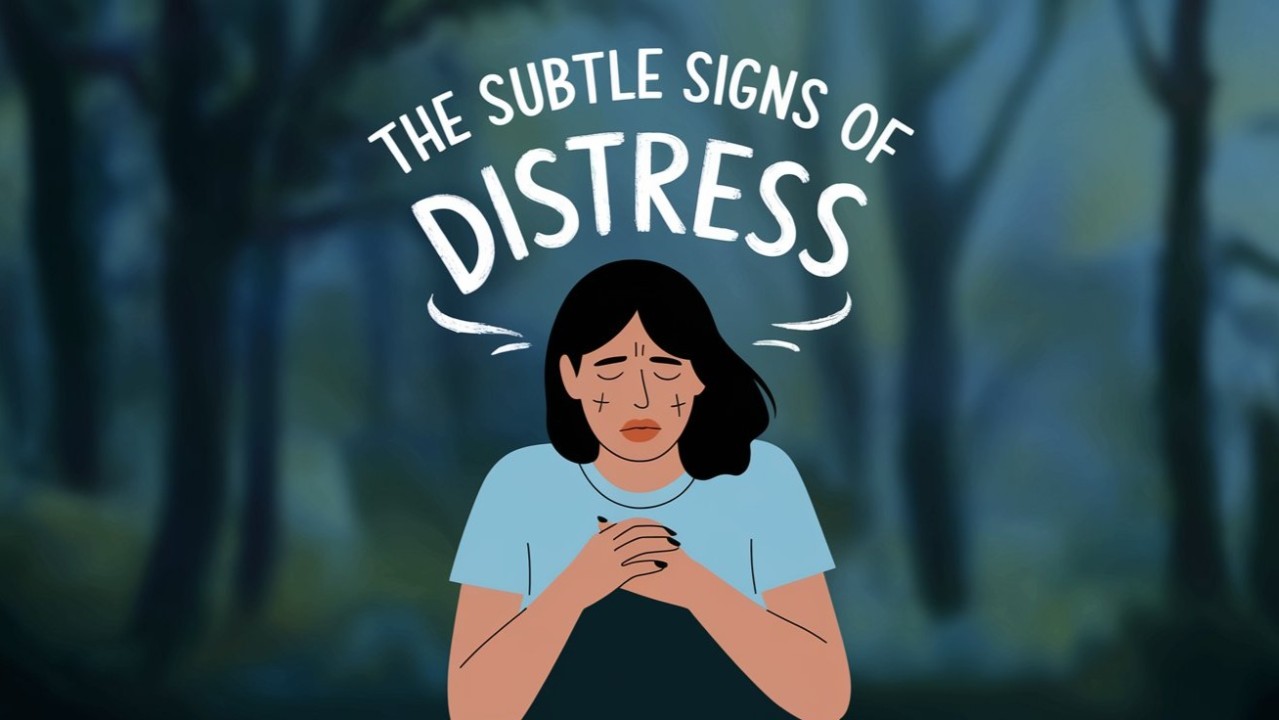
The Subtle Signs of Distress: Recognizing the Hidden Struggles
In today’s fast-paced world, stress and emotional distress have become an unavoidable part of life. However, distress doesn’t always present itself in obvious ways like crying, anger, or verbal expression. Many people silently struggle, displaying subtle signs that often go unnoticed. Recognizing these signs can help us support ourselves and others before things escalate.
1. Changes in Sleep Patterns
A person under distress may experience insomnia or oversleeping. Frequent nightmares, difficulty falling asleep, or waking up feeling unrefreshed can indicate underlying emotional turmoil.
2. Unexplained Fatigue and Low Energy
Persistent tiredness despite adequate rest is often a sign of mental and emotional exhaustion. This kind of fatigue isn’t just physical—it stems from the mind being overwhelmed with stress or worries.
3. Loss of Interest and Withdrawal
People experiencing distress often withdraw from social interactions. They might avoid gatherings, cancel plans, or seem disengaged in conversations and activities they once enjoyed.
4. Increased Irritability and Mood Swings
A person in distress might become unusually irritable, impatient, or quick to anger over minor issues. Uncharacteristic mood swings can indicate internal emotional struggles.
5. Changes in Eating Habits
Eating too much or too little can be a response to distress. Some people turn to emotional eating for comfort, while others lose their appetite altogether.
6. Difficulty Concentrating and Forgetfulness
Distress can impair cognitive function, making it difficult to focus, remember tasks, or make decisions. Frequent absent-mindedness may indicate emotional strain.
7. Unexplained Aches and Pains
Physical symptoms like headaches, muscle tension, digestive issues, and body aches often manifest when someone is struggling emotionally. These psychosomatic symptoms arise from chronic stress and anxiety.
8. Increased Dependence on Unhealthy Coping Mechanisms
Some individuals turn to alcohol, smoking, excessive screen time, or other unhealthy habits to escape their emotions. An increase in these behaviors may signal distress.
9. Forced Positivity or Overcompensation
Sometimes, those in distress try to mask their struggles by acting overly cheerful, making self-deprecating jokes, or becoming excessively busy to avoid confronting their feelings.
10. Avoidance and Procrastination
A distressed person might start avoiding responsibilities, putting off tasks, or feeling overwhelmed by simple daily activities.
How to Help
- Observe and check in: If you notice any of these signs in someone, ask them how they’re doing in a compassionate way.
- Listen without judgment: Give them space to share their feelings without trying to "fix" them immediately.
- Encourage support: Suggest professional help if needed, such as therapy or counseling.
- Offer small acts of kindness: A simple text, a coffee catch-up, or a reassuring word can go a long way.
Recognizing the subtle signs of distress allows us to be more empathetic and proactive in offering support. Sometimes, just knowing that someone cares can make all the difference. ?
 Sign In With Google
Sign In With Google
Leave A Comment